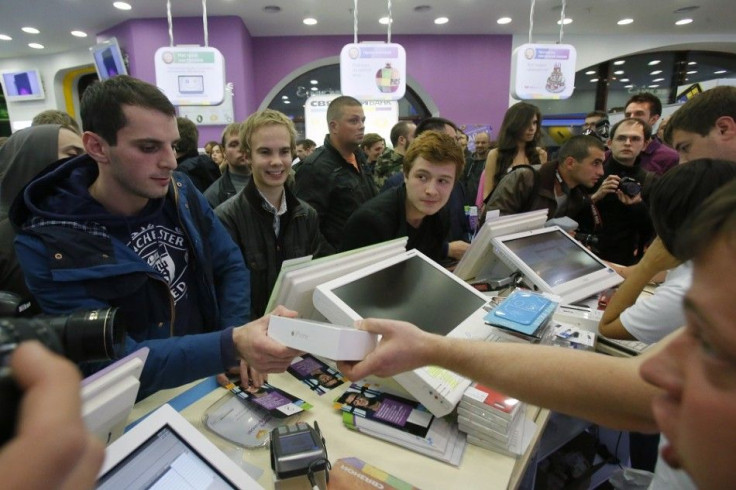Samsung Galaxy, HTC One and Sony Xperia Phone Problems Against Apple iPhone 6 Success

Apple continues to draw success from its iPhone 6 series challenging the position of major Android players like the HTC One, Sony Xperia and the Samsung Galaxy. The Korean tech giant appears to be hit the most as it struggles not only against Apple but also its Android counterparts. However, the problem persists across Android manufacturers.
The ongoing problem among Android phones and their bid against Apple's iPhone is that there is often attributed low demand in terms of aggressive competition and developed markets according to the Motley Fool. What many investors do not see is that Android fragmentation may seem less across Google's partners but in-house fragmentation remains a problem. Analysts point out that Sony, HTC and Samsung have released so many editions of their Xperia, One and Galaxy flagships that monitoring has become more of a challenge. Imagine the confusion and problem on the consumer's part eventually.
The problem with these Android competitors against Apple is that they sell so many versions like Samsung with seven current versions of the Galaxy S5. The Galaxy Note 4 has two at the moment while the Galaxy Alpha has five. Sony works with 26 different Xperia variant with HTC offering eight One models including six Desire editions.
Apple differentiates its iPhone with only two variants at the moment: iPhone 6 and iPhone Plus. Xiaomi, the new China powerhouse, only currently sells four devices: Redmi Note, Redmi 1S, Mi3 and Mi4. Seeking Alpha predicts that Apple can make it big in China with its iPhone 6 Plus. The country is likely to buy many units which poses ideally for Apple because of the higher margin.
To show how the Cupertino-based giant has successfully stood out from the competition, Apple's October 17 release in China and the high demand reportedly prompted Apple to think into givin Foxcoon money for swifter production of the iPhone 6 Plus. According to DigiTimes, Foxconn now charges an extra $20 for every unit produced.
The Motley Fool also points out that the wealthy Chinese customers are very particular about status symbols. This means that phones or device editions that are also related to low-end or bottom-end units cannot measure up against the iPhone 6. This is where Android manufacturers should look into.






